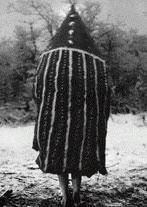
 |
|||||||
 |
|||||||
 |
|||||||
 |
|||||||
 |
|||||||
 |
|||||||
 |
|||||||
| sitemap | |||||||

read an excerpt “When you translate and take care of other people’s novels very well, and you do it for twenty years, there must be a good novelist within you. Leonardo G. Luccone found it, and pulled it out.” “Written very skilfully but, more importantly, with excellent structure. Sentimental, dramatic, moral. Areal book. The most impressive debut novel in recent years.” “Luccone has written a novel for the Shitty Years – and a remarkable novel at that. You feel like saying ‘At last an Italian writer you must read’. […] a bright, elegant exercise in exorcism that leaves the reader no way out, thanks to a mastery of the language that gives the writing substance and rigour and demands respect. And this is no small feat but is essential for being taken seriously and the writer’s stigma. Let’s say it: this is literature.” “This novel of Leonardo Luccone pops with energy. The sadness of the marital discord in the face of the son’s struggle with a learning disability is open, raw and completely true. The friendship between the two men is beautifully drawn. The fine dialogue alone is enough to carry the work; the whole is remarkable.” “Unbridled storytelling, a ‘hypernarrative’ novel […]. Its purpose is to fill the readers with wonder but also focus their critical attention on our present, and it’s therefore quite a different kind of ‘entertainment’ from the currently dominant ‘amusement literature’. […] One of its strongest assets is the perfectly symmetrical, concise dialogue”. “Luccone takes the issues of a 20th century that has been mulled over in our memory with interpretations and reinterpretations, and focusses on it by giving the reader his best writing craft. […] he avoids cloying outcomes and, instead, meticulously builds a body underpinned by well written dialogue that forms a true narrative backbone. […] With his La casa mangia le parole [Houses Eat Words] Luccone stands out as an author with a voice of his own. We couldn't have hoped for a better debut”. The novel operates on several levels and does not follow a linear chronology. Somewhat like memory, it goes where it pleases. Luccone knows exactly where he wants to lead us, though. In a clinical, controlled voice that’s very skilled at defining characters and states of mind, as well as through convincing dialogue, he slowly takes us to a finale where every knot is disentangled and every apparent loose end finds its reason for being. A novel with an ambitious structure (8 parts divided into 118 chapters with several time frames) and styles (with different stylistic tones and forms, as well as the dominant third person, from personal notes to a blog, from e-mails to letters and pages of dense dialogue). […] In what is a choral novel, Luccone throws various narrative clues that are flagged up and which trigger expectations in the reader to then vanish and suddenly reappear further on: a suggestive flow in the storytelling, well managed and made possible by the broad connections. […] As you read, you can hear the buzzing of more old-time cynics because now of low calibre, and characters that bring up to date the industrial atmosphere of Paolo Volponi's 1989 Le mosche del capitale [The Flies of Capital]. The focus of the narrative manages to find a balance between a family snapshot and a collective view, partly thanks to the story about Bioambiente, the Rome-based firm where De Stefano works (chiefly told through very carefully crafted dialogue).
|
